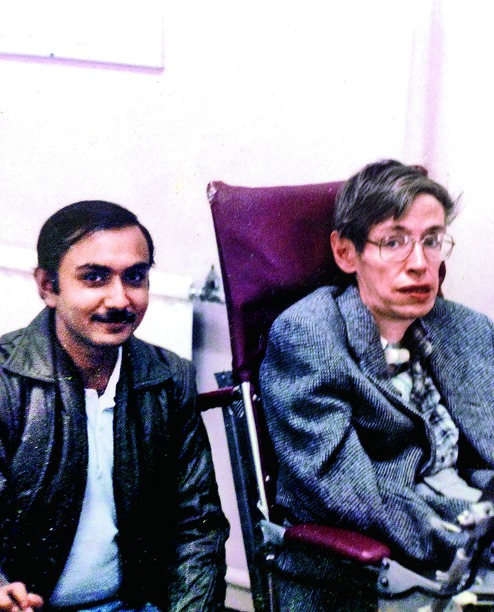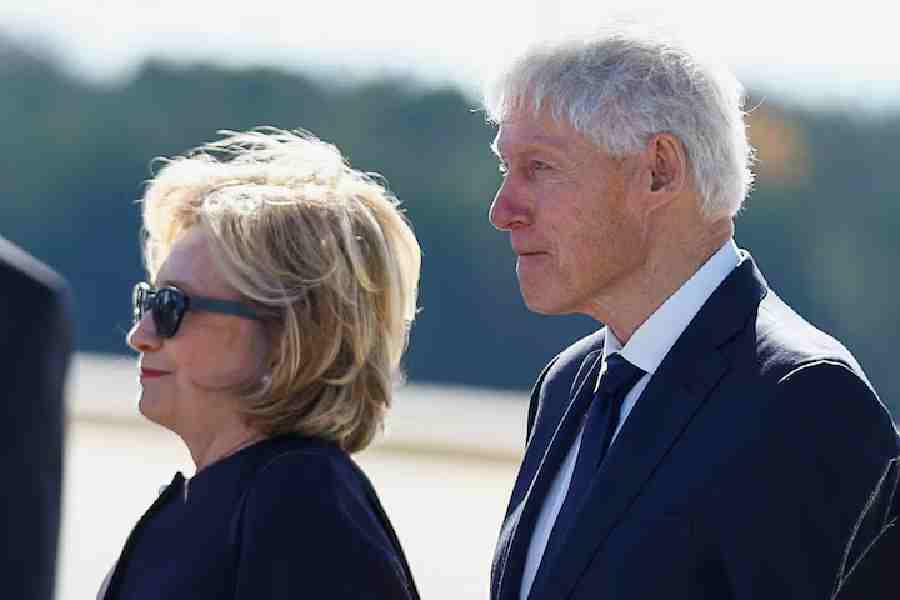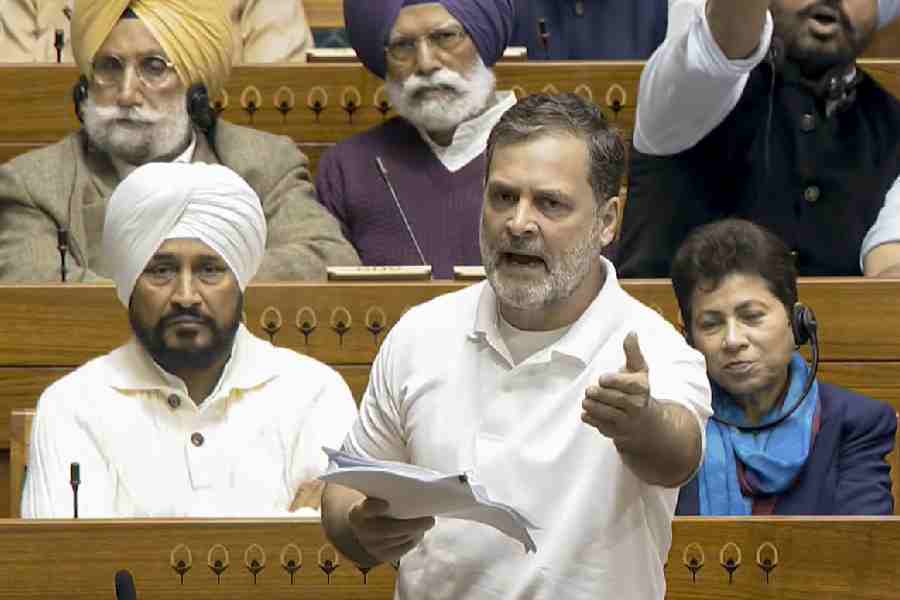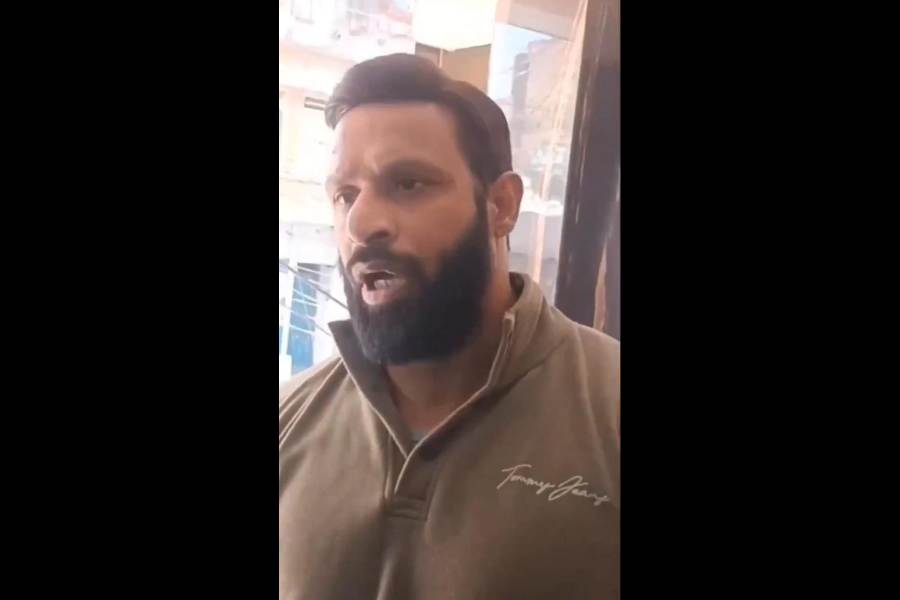
I was fortunate to get enrolled on the Law Tripos course at the University of Cambridge, UK, in October 1988.
As time passed, I made friends there. One of them was Dr Satyajit Ghosh, a theoretical physicist who was pursuing a post-doctoral research at the department of applied mathematics and theoretical physics (DAMTP) at the University of Cambridge.
I came to learn from him that Stephen Hawking was the Lucasian Professor of Mathematics at the university, a Chair once adorned by Isaac Newton, and his workplace was also the DAMTP. I always had a keen interest in the history of the universe and I was eager to meet Stephen Hawking. Dr Ghosh very kindly offered to take me to the great man.
It was some day in March 1989 that I accompanied Dr Ghosh to the DAMTP around 4.30pm. We went to the Fellows' Common Room where Stephen Hawking came to have his cup of tea every day around that time.
As we entered the Fellows' Common Room a feeling of awe overcame me. There he was sitting on his wheelchair, his nurse helping him with a cup of tea. He looked totally emaciated, the amyotrophic lateral sclerosis or motor neuron disease with which he was diagnosed in early 1963 obviously having taken its debilitating toll on the great scientist.
His head was tilted towards the right. There appeared to be a fixed smile on his face and a twinkle in his eyes. I was so overpowered by the great man's presence that I was not thinking straight. I just blurted out that I would like to have his autograph on a copy of A Brief History of Time, which I was carrying with me. I regretted the moment I said this. I could see that he was not in a position to sign. Without any sign of irritation he said through the speech synthesiser that was attached to his wheelchair which he could operate by using a touchpad that he was unable to sign but if I really wanted, he could put his thumb imprint on the book.
He added that he avoided doing that, since removing the ink from his thumb was a messy affair. I apologised and requested for a photo with him. He was happy.
Dr Ghosh introduced me to the legend and we had a very friendly conversation for about 15 minutes. I addressed him as "sir" but he politely told me that he was not knighted and I should call him Stephen. Apart from finding out about what I was doing in England, he expressed deep interest in the history of Indian culture. He came across as the quintessential gentleman with a soft and sympathetic mind. Before I left he told me that he was delivering a lecture on Black Holes two days later at the DAMTP which was for the layman and he would be happy if I could attend it.
I attended the lecture. The great scholar explained the theory of Black Holes in such a lucid manner that even a person like me having no background in physics could understand. It was an exhilarating experience.
I managed to attend two more of his lectures during my stay in Cambridge which were equally interesting and educative. After each seminar I would go up to him and ask if he remembered me. He would say "of course young man, you are Banerjee from Calcutta". Such was the greatness of Stephen Hawking who had no reason to remember an ordinary young boy like me.
Last time I met Stephen was just before I left Cambridge after completing my graduation in July 1990. He wished me all the best and told me that he would definitely look me up if he ever came to Calcutta.
After I returned to Calcutta in August 1991 after completion of my studies in the UK, I got sucked into the quagmire of the legal profession which left me with practically no time to nurture my contacts with my friends in England. This is a matter of huge regret for me.
I feel sad as Stephen is no more in this world. His indomitable spirit with which he defied all odds and became the leading cosmologist of our times has left an indelible mark on my mind.
His life exemplifies that one can achieve excellence in spite of serious disabilities if one has the will, grit, spirit, dedication and determination to do so. Stephen will no more be bound to his wheelchair. He is probably exploring new (and timeless) celestial worlds far away from our planet.
I salute Stephen Hawking and wish him peace wherever he is.










